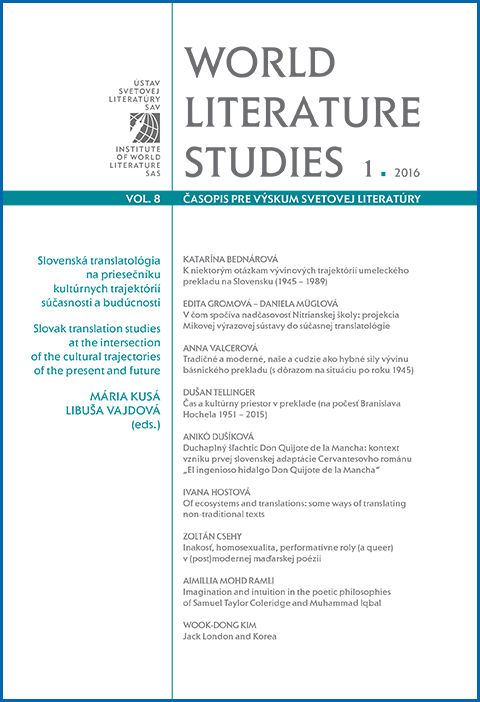Imagination and intuition in the poetic philosophies of Samuel Taylor Coleridge and Muhammad Iqbal
Imagination and intuition in the poetic philosophies of Samuel Taylor Coleridge and Muhammad Iqbal
Author(s): Aimillia Mohd RamliSubject(s): Studies of Literature
Published by: Ústav svetovej literatúry, Slovenská akadémia vied
Keywords: Romanticism; Coleridge; Iqbal; Imagination; Intuition
Summary/Abstract: The stress that English Romanticism laid upon a poet’s imaginative capacity as a source of poetic inspiration finds its clearest expression in the writings of its philosopher Samuel Taylor Coleridge (1772–1834). Unlike many of his English contemporaries, he developed a philosophy of poetic inspiration that conceptualized the notion of imagination within the context of a Christian theology that was informed by both Neoplatonism and German idealism. As a student and later lecturer of English literature, the Muslim poet Muhammad Iqbal (1877–1938) had been exposed to both English Romanticism and German idealism. Though he recognized the importance of imagination as a source of artistic creativity, Iqbal emphasized intuition as a higher form of poetic inspiration. By adopting as well as adapting certain aspects of English Romanticism and then merging it together with Islamic theology in his poetry, Iqbal argues for the importance of a special type of intuition, the “intuition of existence”, as a form of poetic inspiration. This paper, hence, is a comparative study of English Romanticism’s emphasis on imagination and Iqbal’s notion of intuition, in order to discuss the important roles that both Christian and Islamic theologies played in both poets’ poetic philosophies respectively.
Journal: World Literature Studies
- Issue Year: VIII/2016
- Issue No: 1
- Page Range: 98-111
- Page Count: 14
- Language: English

